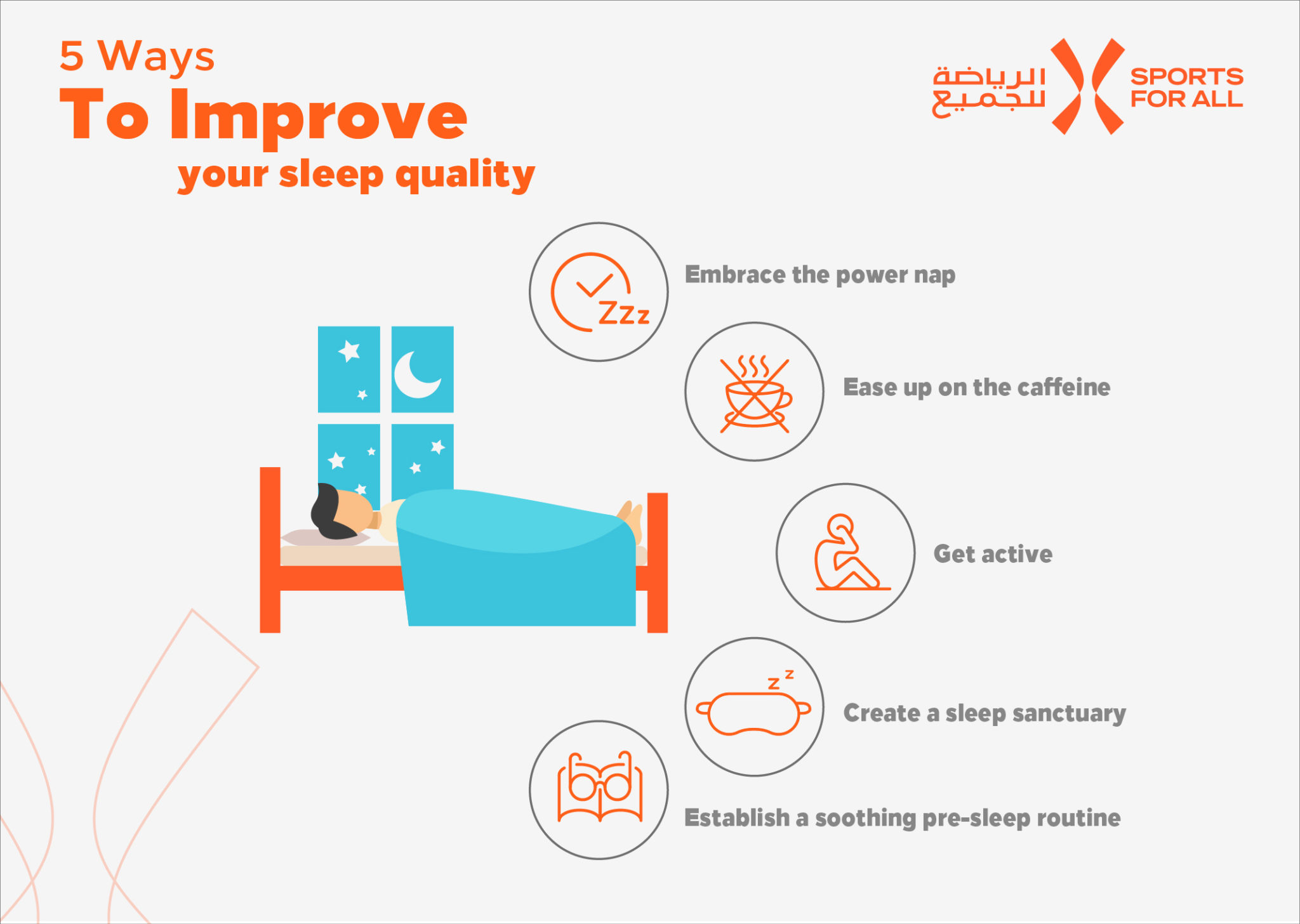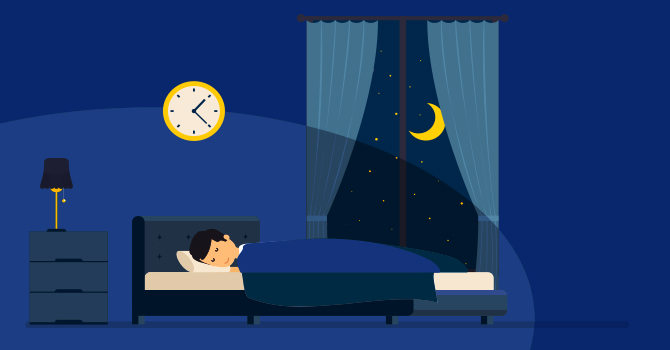There are many actions that can be taken to improve one’s quality of sleep. Many people have trouble sleeping, staying asleep, or have a sleep disorder. One should always consult their physician if they are experiencing suspected symptoms of a sleep disorder. There are things that can be done to improve your sleep even if you do not struggle with it. People often do not realize that they are not getting the proper amount or quality of sleep. This video provides a great overview of some tips that can be utilized to improve sleep quality.
Keep your sleep schedule consistent
Sleep is of the best quality when someone goes to bed and wakes at the same time each day. Consistency can aid with long-term sleep quality. Irregular sleep patterns affect the function of your circadian rhythm and melatonin release in the brain. Going to bed at different times each night does not allow your brain to properly wind down for the night. A great way to improve sleep quality is to keep your sleep schedule consistent to allow for regulated circadian rhythm patterns and levels of melatonin. The natural hormone cycles of the body can be regulated when someone keeps their sleep schedule consistent.
Set the environment
Every person varies in their natural body temperature and when they feel most comfortable. The ideal bedroom temperature for sleeping ranges from 60-71.6℉. It is important to sleep in an environment that does not feel hot, as this can disrupt sleep. Studies suggest that a hot room can disrupt your body’s natural melatonin release at night. A warm room can also cause someone to wake up more throughout the night and disrupt REM sleep. Other factors are important when creating a restful environment. Outside noises should be reduced as much as possible. A noisy sleeping area can lead to disrupted sleep and difficulty staying asleep.

Reduce screen use before bed
The last thing many people do before going to bed is use their phones. The use of any screen before bed can be disruptive for a variety of reasons. Exposing the brain to high levels of light causes stimulation. The activation of the brain before bedtime causes difficulty falling and staying asleep. Smartphones are designed to keep people engaged and provide information, but this can be harmful to sleep quality. The blue light that emits from smartphones delays the release of melatonin in the brain. It is an artificial color emitting from a screen that activates the brain similarly to how sunlight does. This light causes your brain to be more awake, decreases melatonin release, and leads to restless sleep.
Using a phone right before bed can also lead to increased emotions and racing thoughts. The brain can feel more alert after using social media and this leads to delayed REM sleep. Screen use before sleep is harmful to maintaining consistent sleep cycles and a regulated circadian rhythm.
Some supplements to take
There are many supplements out there that claim to help you fall asleep faster, stay asleep, and have a better night’s rest. Everyone’s body is different and you should find what works best for you to get quality sleep. Melatonin is beneficial to take for occasional episodes of insomnia. It is the main neurotransmitter in the brain responsible for regulating the circadian rhythm. Magnesium is another supplement that has been shown to improve sleep quality, reduce the amount of time it takes someone to fall asleep, and reduce the symptoms of restless leg syndrome. The study that demonstrated this was with a small group of participants. Therefore, more research should be done to determine the benefits of magnesium for sleep quality. Lavender is another supplement that is beneficial for improving sleep quality. It has been shown to induce calming effects and improve sleep quality by causing a sedentary effect.
